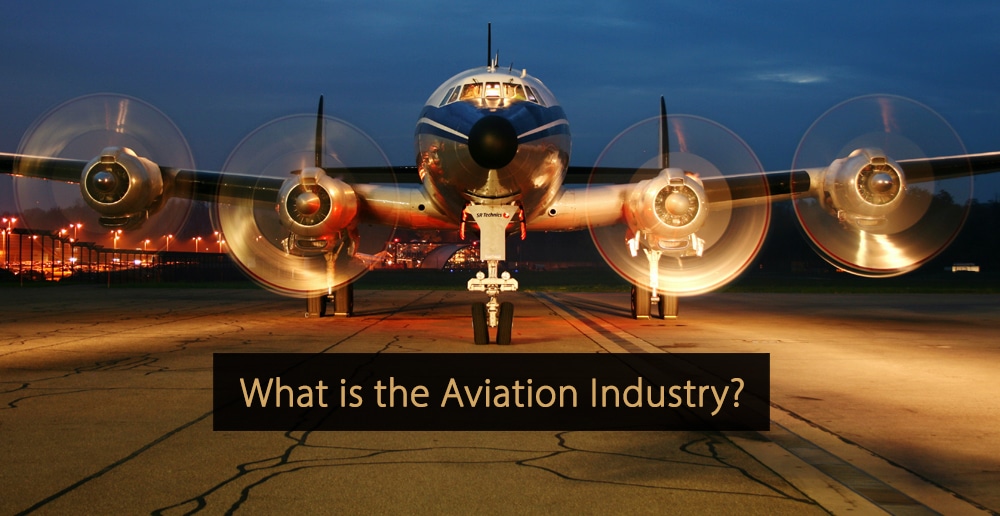For anyone contemplating becoming an aviation manager, it is important to take the time to learn as much about the role as possible. In this article, you will find a detailed job description, including duties, salary information, and education requirements, and you will also find tips for actually finding and applying for the role.
Table of Contents:
- Aviation Manager Job Description
- What is an Aviation Manager?
- What Are the Duties of an Aviation Manager?
- What Skills Does an Aviation Manager Need?
- What Are The Training & Education Requirements?
- What is the Salary of an Aviation Manager?
- Tips to Become an Aviation Manager
- Video: What Does The Role of an Aviation Manager Entail?
- An Extensive Overview of Other Aviation Positions
- Become an Aviation Manager By Taking the Right Aviation Course
Aviation Manager Job Description
If you are contemplating a career as an aviation manager, you will first need to take the time to fully understand what the role means, what is involved, and what day-to-day life will be like.
What is an Aviation Manager?
An aviation manager can be briefly described as a business or organization manager within the aviation industry. This could mean working in airline management, for example, where you will be responsible for the overall operations of an airline. Still, it may also mean becoming the manager at an airport, an aircraft manufacturing company, or similar.
As such, this means the job of one aviation manager may differ significantly from another. The main things that unite these roles are senior managerial responsibilities combined with a clear specialization in aviation-related processes.
What Are the Duties of an Aviation Manager?
An aviation manager is essentially responsible for overseeing all major operations of the aviation business, so duties associated with the role are wide-ranging. Typically, as an aviation manager, you will be in charge of hiring and firing staff, negotiating contracts, and coordinating the work carried out by the various departments.
In addition, you will need to take responsibility for the provision of training, help design and implement strategic initiatives and ensure the aviation company complies with all of the relevant rules and regulations. You may also be required to step into various other roles within the organization to keep things ticking over.
Generally, an aviation manager will still have to report to senior executives and other stakeholders. For this reason, many of your duties may be in an office and include writing and reading reports.
What Skills Does an Aviation Manager Need?
To succeed as an aviation manager, you will need strong organizational skills and the ability to work well under pressure. Both written and verbal communication skills are essential, and you must also possess a strong knowledge of the aviation industry and its processes, nuances, and legal requirements.
Sound judgment, excellent time management, critical thinking, people skills, and problem-solving ability are all fundamental to the role. In many companies, possessing customer service experience can be invaluable. At the same time, you will also need to be adaptable and have the stamina to work in a demanding and potentially stressful role.
What Are The Training & Education Requirements?
In most cases, aviation managers have worked in the aviation or airline industry for years. They will have completed a significant amount of on-the-job training in that time, helping to build some of the relevant base knowledge. Nevertheless, most aviation manager roles require a bachelor’s degree or a similar qualification.
Examples of these degrees include business management and business administration, while degrees in fields like law may also be advantageous. Some academic institutions now also offer degrees in aviation management, and these courses will typically include an internship with an aviation company, giving you relevant experience.
What is the Salary of an Aviation Manager?
The salary for an aviation manager will depend on several factors, including the employer, the location, the level of experience you bring to the table, and the extent of your responsibilities. Managers at an airline may receive a different amount from managers at an aircraft manufacturer, and so on.
However, as a guide, Salary.com lists the median annual salary of an aviation manager in the United States as being in the region of $170,000, spanning from around $140,000 to more than $200,000. Salaries in other parts of the world, including the United Kingdom, tend to be slightly lower than that.
Tips to Become an Aviation Manager
Below, you will find some useful information on how actually to find work as an aviation manager.
1. Overview of Channels to Find an Aviation Manager Job
When searching for aviation manager jobs online, several different channels are worth exploring, and for best results, you should consider using a combination. Among the main options are the websites of industry employers, recruitment agency websites, industry job boards, and social media sites.
Read “Aviation Jobs: Overview of Websites to Find Aviation Vacancies” for further details on the benefits of these different options, along with a list of some of the best websites in each of the main categories.
2. Tips on How to Successfully Apply for an Aviation Manager Job
One thing to remember about any aviation manager job is that there will almost certainly be a lot of competition. Managerial positions are in high demand, and employers will usually have no shortage of candidates, so taking advantage of small ways to improve your chances can be important.
Read the “Travel Careers: Tips to Find a Career in the Travel Industry” article, and you will be able to learn much more and learn some of the ways you can boost your chances of finding work as an aviation manager.
3. Aviation Management: A Great Guide to Start Your Career in Aviation
Before you get started in aviation management, it pays to take on as much information as possible. For example, how aware are you of the benefits of working as an aviation manager? Do you understand the value of bachelor’s and master’s degrees in aviation management? Do you know how these qualifications differ?
Read the “Aviation Management: A Great Guide to Start Your Career in Aviation” article for answers to these questions, giving you an excellent foundation to begin your new aviation career.
Video: What Does The Role of an Aviation Manager Entail?
Within the video, several professionals explain the responsibilities of an aviation manager.
An Extensive Overview of Other Aviation Positions
The role of aviation manager is not for everyone, and there is no shame in acknowledging that you may not necessarily be the ideal candidate for such a stressful role. However, there is a wide range of other aviation career opportunities to explore, and the sheer variety should mean there is a better option out there for you.
Read “Aviation Careers: An Overview of Different Aviation Positions” to take a closer look at the different opportunities and understand what skills and personal qualities are needed in each case.
Become an Aviation Manager By Taking the Right Aviation Course
Some aviation manager positions require specific qualifications, such as a bachelor’s degree or industry certificate. With this in mind, it may be necessary to identify and enroll in an aviation course. Crucially, these courses can help to teach you some of the key skills required to do the job effectively.
To find out more about the available courses, the skills they focus on, and the management jobs they are useful for, read the “Aviation Course: A Comprehensive List of Courses & Aviation Educators” article.
The job of an aviation manager is complex and requires a comprehensive understanding of the aviation industry. Additionally, you will need some specific personal qualities to succeed in a senior role. Assuming you possess these attributes, the tips provided should help you land the job you are looking for.
More Tips to Grow Your Business
Revfine.com is the leading knowledge platform for the hospitality and travel industry. Professionals use our insights, strategies, and actionable tips to get inspired, optimize revenue, innovate processes, and improve customer experience.Explore expert advice on management, marketing, revenue management, operations, software, and technology in our dedicated Hotel, Hospitality, and Travel & Tourism categories.
This article is written by:
Hi, I am Martijn Barten, founder of Revfine.com. With 20 years of experience in the hospitality industry, I specialize in optimizing revenue by combining revenue management with marketing strategies. I have successfully developed, implemented, and managed revenue management and marketing strategies for individual properties and multi-property portfolios.









Leave A Comment